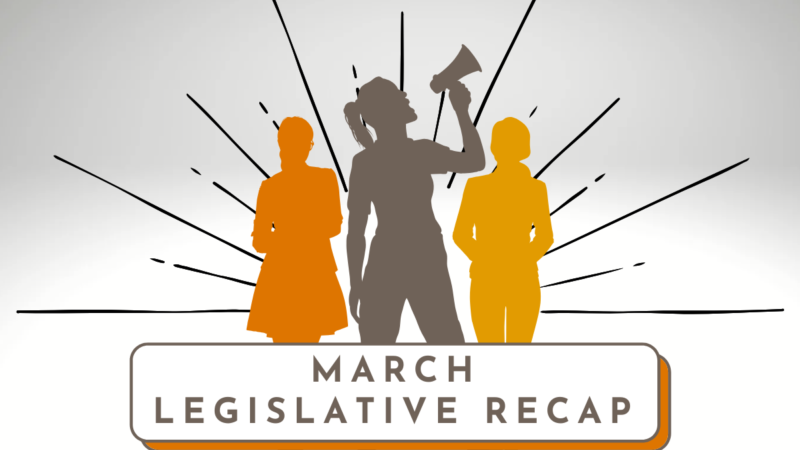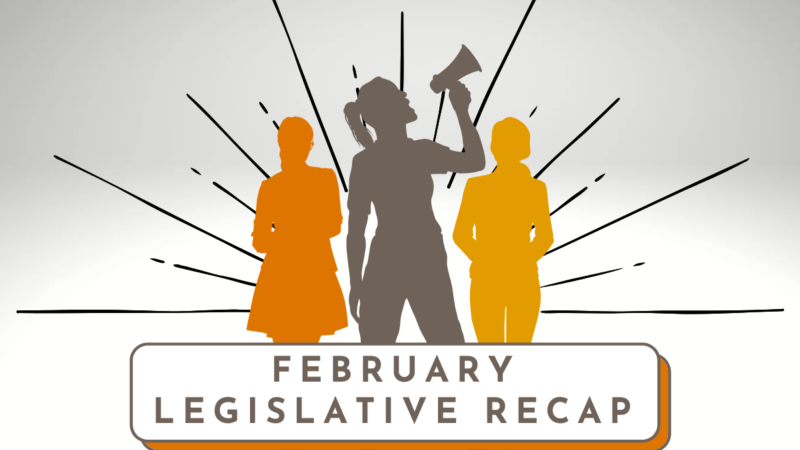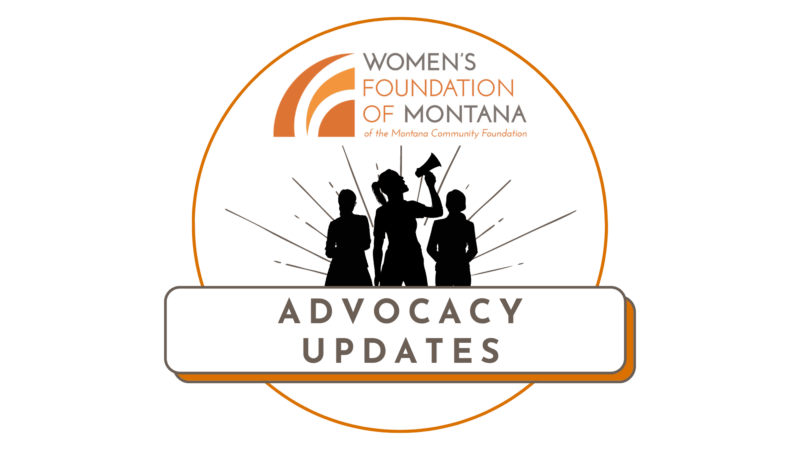Advocacy
68th Montana Legislative Session - What you need to know!
May 12, 2023
Prepared by WFM Lobbyist Robin Turner of Turner Strategies
Last summer, Women’s Foundation of Montana grantees who engage in policy advocacy encouraged us to leverage our relationships in the business sector to further systemic change. To begin to build momentum toward this goal, WFM completed stakeholder interviews and remained in close contact with organizations throughout the session to flexibly meet their needs. WFM also hired a contract lobbyist to work with grantees and partner organizations on WFM’s legislative priorities.
WFM Grantees that engaged in legislative advocacy:
Montana Budget and Policy Center
Montana Coalition Against Sexual and Domestic Violence
Planned Parenthood Advocates of Montana
The 68th Montana Legislative Session adjourned on May 2nd, 2023. The workload of this Session was unprecedented in recent memory. Legislators requested 4,463 bill drafts and introduced over 1,600 of those drafts. As of April 25th, 801 bills passed – and this does not count the last minute flurry of the final legislative week.
Priority 1: Child Care
Montana must invest in childcare access to support families in accomplishing their professional goals and to assist businesses in maintaining a steady and capable workforce. Insufficient childcare options can prevent parents who wish to work from doing so, with mothers often bearing the brunt of this challenge. Among parents who wish to work, child-rearing tends to interfere more with women’s labor supply and employment outcomes than with men. WFM believes when we invest in access to livable wages, affordable childcare, health care, equal pay, education, and job training - stronger families, communities, and economies result.
WFM Grantees Montana Budget and Policy Center and partners Montana Cooperative Development Center/Zero to Five prioritized this issue. Check out MPBC’s pre-session report on the need for expanded childcare resources, and Zero to Five’s roundup on research on these issues.
We worked closely with grantees and the Montana Advocates for Children (MAC) on the following bills:
HB 648, Best Beginnings Childcare (sponsor Rep. Alice Buckley, Bozeman): SUPPORTED by WFM. The Best Beginnings Childcare Scholarship program existed prior to 2023, however, the final version of this bill called for an appropriation of $7 million to expand the program to allow families at up to 185% of the federal poverty line to apply for the program. Further, families enrolled in the program will not pay more than 9% of their monthly income in co-pays for services. This bill was proposed by the bipartisan House Human Services committee after an earlier effort failed to make it through the process. The bill has passed through the legislature and awaits final legislative leadership signatures before it heads to the Governor’s desk.
HB 187, Childcare as residential use of property (sponsor Rep. Alice Buckley, Bozeman): SUPPORTED by WFM. This bill makes it easier for Montana daycare providers to have registered home-based business. By defining childcare as a residential use of property, cities and counties cannot restrict home-based childcare to commercial zoning areas only. This allows for greater investment in the childcare workforce. This bill was signed by Governor Gianforte in April and has become law.
SB 376, Covenants cannot restrict childcare (sponsor Sen. Kenneth Bogner, Miles City): SUPPORTED BY WFM. This bill was intended to block HOAs and community boards from restricting residential daycares. The bill would have worked in tandem with HB 187 to ensure people could have in-home childcare businesses. This bill died in the process and will not become law.
Priority 2: Reproductive Healthcare
Women’s Foundation of Montana believes that sexual and reproductive health and autonomy (including access to abortion) are foundational to women’s economic development. Abortion is an essential part of women’s healthcare. The recently published Turnaway Study[1] provides helpful insights into the economic impacts that people face if they are denied an abortion. This is the first study to closely examine the effects of receiving versus being denied a wanted abortion. The study found serious consequences of being denied an abortion on women’s health and wellbeing. Women forced to carry an unwanted pregnancy to term have four times greater odds of living below the Federal Poverty Level (FPL) and three times greater odds of being unemployed. Further, according to this study, there is an increased likelihood that women will not have enough money to pay for basic family necessities like food, housing and transportation if they were denied an abortion.
WFM Grantees Planned Parenthood of Montana, Montana Coalition Against Domestic & Sexual Violence, Susan Wicklund Fund, and Montana Women Vote are members of the Montana Sexual and Reproductive Health Collective, which works in opposition to bills restricting access to abortion and other healthcare. We worked closely with grantees and partners on the following bills:
Attacks on Medicaid recipients seeking abortion services:
[1] Foster DG, Ralph LJ, Biggs MA, Gerdts C, Roberts SCM, Glymour MA. Socioeconomic outcomes of women who receive and women who are denied wanted abortions. March 2018. American Journal of Public Health, 108(3):407-413.
HB 544 and HB 862: WFM OPPOSED. These bills attack low-income Montanan’s access to both surgical and medication abortion.
HB 862 was sponsored by Rep. Mike Hopkins of Missoula. This bill allows a ban on all state funding for abortion services (Montana currently provides state funds to abortion services, unlike the federal government). HB 862 has passed the Legislature and is waiting for the Governor to sign or veto. If the Governor signs the law, Medicaid would not longer cover abortions unless the pregnancy was the result of a rape or incest, or, if the mother’s physical wellbeing was in danger.
HB 544, sponsored by Rep. Jane Gillette of Bozeman, would add onerous requirements for physicians providing abortions under Medicaid. Doctors would be required to gather additional personal information, and people seeking abortion would be required to have in-person appointments and could not access telehealth services. This bill has also passed the Legislature and is on its way to the Governor. If HB 862 is signed into law, HB 544 is virtually ineffective (since abortions paid for by Medicaid would be banned with limited exceptions).
HJ 33, study bill of negative impacts of abortion (sponsor Rep Lola Sheldon-Galloway): WFM OPPOSED. This bill would have allowed the Legislature to study the ‘negative impacts’ of both surgical and medication abortions. This study would have been done in the interim between Sessions. The sponsor was intent that the Legislature only consider negative impacts. This bill came up at the very end of the Session and did not pass before the Session ended. Great news!
HB 302, provide for 12-month dispensation of birth control (sponsor Rep. Alice Buckley). WFM SUPPORTED. This bill requires insurance companies to reimburse for a 12 month supply of birth control medication or contraceptive products. This bill easily passed the Legislature and awaits the Governor’s signature. Adoption of an extended dispensing schedule has proved to reduce unwanted pregnancies and the financial burdens of those pregnancies.
Thanks to all who reached out to their legislators to hold them accountable or to thank them. Please feel free to reach out to your Representatives and Senators throughout the interim – they work for you even when the Legislature is not in Session.



